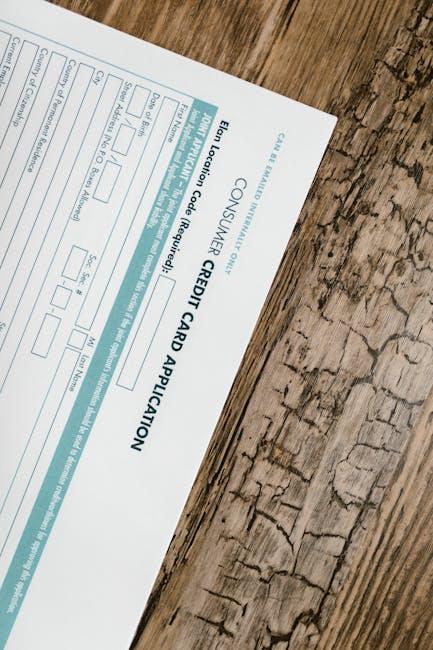Building credit from scratch in the USA can seem daunting, especially for those just starting their financial journey. Yet, establishing a solid credit history is one of the most empowering steps you can take toward future financial stability. Whether you’re a recent graduate, a new immigrant, or simply looking to improve your financial standing, understanding the basics of credit is essential. From timely bill payments to strategic use of credit cards, there are simple yet effective strategies to help you construct a robust credit profile. In this article, we’ll explore these steps, providing you with the tools to pave the way for a successful credit journey.
Building a Strong Foundation: Understanding Credit Basics
Understanding credit is crucial for achieving financial stability and accessing valuable opportunities. Here, we’ll break down the essentials of credit, helping you build a strong foundation.
What is Credit? Credit refers to the ability to borrow money or access goods or services with the understanding that you’ll pay later. It is often represented as a three-digit number known as your credit score, which lenders use to gauge your risk as a borrower.
Why Credit Matters Having a good credit history is essential for:
- Obtaining loans for major purchases like homes and cars.
- Securing better interest rates on loans and credit cards.
- Affecting rental applications and even job opportunities.
How is Your Credit Score Determined? Several factors influence your credit score, typically ranging from 300 to 850:
- Payment History (35%): Timely payments on bills significantly boost your score.
- Credit Utilization (30%): This is the ratio of your current credit card balances to your total credit limits. Aim for a utilization rate below 30%.
- Length of Credit History (15%): Older accounts positively impact your score, so keep older credit cards active.
- Types of Credit (10%): A mix of credit types (installment loans, revolving credit) can be beneficial.
- New Credit Inquiries (10%): Limit the number of hard inquiries to avoid negatively impacting your score.
Types of Credit It’s important to understand the different types of credit available:
| Type | Example |
|---|---|
| Revolving Credit | Credit cards (Visa, Mastercard) |
| Installment Loans | Mortgage, auto loans |
| Retail Credit | Store credit cards |
| Secured Credit | Secured credit cards or loans backed by cash deposits |
Building Your Credit from Scratch If you’re starting from zero, consider these strategies:
- Open a Secured Credit Card: These require a cash deposit as collateral, making it easier to obtain.
- Get a Credit-Builder Loan: Offered by some banks and credit unions, these loans help you establish payment history.
- Become an Authorized User: Adding your name to a family member’s account can boost your score.
- Report Your Rent Payments: Some services allow you to report your rent payments to credit bureaus.
- Pay Your Bills on Time: Consistent, on-time payments for utility and other bills can help build your financial reputation.
Maintaining Good Credit Once you have established credit, keep these principles in mind:
- Regularly check your credit reports for errors.
- Limit unused credit cards to keep your credit utilization low.
- Maintain a diverse portfolio of credit types for a healthy credit mix.
By understanding and actively managing your credit, you’ll be on your way to creating a strong financial future.

Smart Steps to Establish Your Credit Profile
Establishing a solid credit profile is essential for securing loans, leases, and favorable interest rates in the U.S. Here are some smart steps you can take to lay a strong foundation for your business credit:
- Register Your Business: Choose a business structure (LLC, corporation, etc.) and register with your state. Ensure you have a unique business name that isn’t confused with another entity.
- Obtain an EIN: Apply for an Employer Identification Number (EIN) through the IRS. This number is crucial for tax purposes and for establishing your business identity.
- Open a Business Bank Account: Use your EIN to open a dedicated business bank account. This separates your personal finances from your business, which is important for credit building.
- Establish Trade Lines: Work with suppliers or vendors that report to credit bureaus. Establish trade credit accounts to build your credit profile with consistent payments.
- Apply for a Business Credit Card: Choose a credit card designed for businesses that reports to the major credit bureaus. Use it regularly and pay off the balance in full each month.
- Monitor Your Credit Reports: Regularly check your credit reports from major agencies like Experian, Dun & Bradstreet, and Equifax. Dispute any inaccuracies to maintain a positive credit score.
- Establish a Positive Payment History: Ensure timely payments on all business debts, including loans, credit cards, and invoices. Payment history significantly impacts your credit score.
Utilizing these steps will create a robust business credit profile that enhances your chances of securing financing opportunities and favorable terms in the future.
| Step | Description |
|---|---|
| Register Your Business | Choose a suitable business structure and officially register it. |
| Obtain an EIN | Get an Employer Identification Number from the IRS for tax purposes. |
| Open a Business Bank Account | Separate your business and personal finances using a dedicated account. |
| Establish Trade Lines | Work with vendors that report payment history to credit agencies. |
| Apply for a Business Credit Card | Use a business credit card responsibly to build credit. |
| Monitor Your Credit Reports | Regularly review reports for accuracy and disputes. |
| Establish a Positive Payment History | Pay all debts on time to create a solid payment history. |

Effective Strategies for Responsible Credit Use
Building and maintaining a healthy credit score is essential for financial well-being. Here are some effective strategies to manage your credit responsibly:
- Utilize Credit Wisely: Aim to use no more than 30% of your available credit limit. This helps keep your credit utilization ratio low, which is beneficial for your score.
- Pay Bills on Time: Timely payments are crucial. Set reminders or automate payments whenever possible to avoid late fees and negative marks on your credit report.
- Keep Old Accounts Open: The length of your credit history impacts your score. Instead of closing old but unused accounts, keep them open to benefit from a longer credit history.
- Diverse Credit Types: Incorporate a mix of credit types, such as revolving credit (like credit cards) and installment loans (like auto loans or personal loans), to improve your credit profile.
- Limit Hard Inquiries: Each application for new credit can result in a hard inquiry, which may lower your score. Be selective about applying for new credit.
- Regular Credit Checks: Monitor your credit reports regularly for errors or signs of fraud. You can obtain a free report annually from each of the three major credit bureaus: Experian, Equifax, and TransUnion.
- Consider a Secured Credit Card: If you’re starting from scratch or rebuilding your credit, a secured credit card can be a good option. These cards require a cash deposit as collateral, making them less risky for lenders.
| Tip | Benefit |
|---|---|
| Utilize less than 30% of your credit limit | Helps maintain a good credit utilization ratio |
| Pay bills on time | Avoids late fees and negative credit history |
| Keep old accounts open | Increases the average length of credit history |
| Diversify types of credit | Enhances your credit profile |
| Limit hard inquiries | Reduces potential score drops |
| Check credit reports regularly | Identifies errors and potential fraud |
| Consider secured credit cards | Builds credit risk-free |
Following these strategies not only establishes a robust credit profile but also paves the way for future financial opportunities, whether it’s buying a home, securing loans, or obtaining favorable insurance rates.

Navigating Common Challenges on Your Credit Journey
Building credit from scratch can feel overwhelming, especially when encountering common challenges. Here are some hurdles you might face and how to navigate them effectively:
- Limited Credit History: Starting with no credit history can lead to difficulties in securing loans or credit cards. Consider applying for a secured credit card, which requires a cash deposit as collateral. Your responsible usage will help you build your credit score.
- High Interest Rates: New credit users often face higher interest rates. Always compare offers from various lenders. Websites like Bankrate can help you find competitive rates. Look for introductory 0% APR offers to minimize costs.
- Lack of Credit Mix: Credit scoring models reward users with a diverse mix of credit accounts. Aim for a combination of installment loans and revolving credit. Student loans or small personal loans can complement your credit card usage.
- Fear of Overextending: It’s easy to overspend with credit. To combat this, create a budget that includes a specific limit for your credit usage. The Credit Karma app can help track your spending and monitor your credit utilization rate.
- Negative Information: Negative marks, such as missed payments, can significantly impact your score. Set up automatic payments or reminders to ensure timely payments, preventing any missed deadlines.
| Challenge | Solution |
|---|---|
| Limited Credit History | Apply for a secured credit card. |
| High Interest Rates | Compare rates and look for 0% APR offers. |
| Lack of Credit Mix | Add installment loans alongside credit cards. |
| Fear of Overextending | Create a budget and track spending. |
| Negative Information | Set up automatic payments. |
By proactively addressing these challenges, you can steadily improve your credit profile, paving the way for future financial opportunities.

Wrapping Up
Building your credit from scratch can feel overwhelming, but it’s a journey worth embarking on. By taking informed steps and applying the knowledge shared in this article, you can lay a strong foundation for your financial future. Remember, good credit isn’t just a number-it’s a tool that opens doors to opportunities such as favorable loan terms, lower insurance rates, and even improved job prospects. Stay disciplined, monitor your progress, and don’t hesitate to seek out resources that can guide you along the way. With patience and persistence, you’ll find that your hard work pays off, and soon you’ll be well on your way to financial independence.














